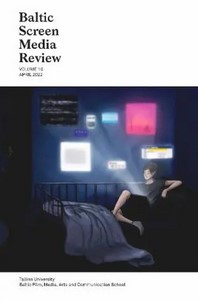“What kind of cop are you?”: Disco Elysium’s Technologies of the Self within the Posthuman Multiverse
“What kind of cop are you?”: Disco Elysium’s Technologies of the Self within the Posthuman Multiverse
Author(s): Conor MckeownSubject(s): Visual Arts, ICT Information and Communications Technologies, Ontology
Published by: Tallinna Ülikooli Balti Filmi- ja Meediakool
Keywords: Disco Elysium; Video game; posthuman multiverse; Katherine Hayles; Francesca Ferrando; Karen Barad;
Summary/Abstract: I suggest in this article, drawing upon Francesca Ferrando, Karen Barad and N Katherine Hayles, that Disco Elysium illustrates the human through the mode of a ‘posthuman multiverse’. Per Ferrando, humans and other beings act as nodes in a material multiverse while what we think, eat,our behaviours and relations, create part of a rhizomatic ecology that can be understood as who and what we are. This, I illustrate, overcomes a complicated tension in existing posthuman theory, particularly as it relates to game studies. Although theorists have detailed the entanglement of players and machines, and the new materialist nature of becoming, it is unclear to what extent human-machine assemblages can be said to be a singular ‘thing’. This is tackled in Disco Elysium as the seemingly mundane and often invisible actions the player takes, all play a role in constructing Harry Dubois and the world that is also endlessly producing him. Game actions, therefore, can be viewed as ‘technologies of the multiverse’, the ontological functions through which beings come to exist in a dimension. The game positions the player in a ‘relational intra-activity’ not only with the actions and outcomes of play, as discussed in previous scholarship, but also with the hypothetical outcomes of choices they have not made. When read through the lens of Ferrando’s philosophical posthuman multiverse, Disco Elysium represents a valuable resource for bridging gaps in contemporary posthuman scholarship.
Journal: Baltic Screen Media Review
- Issue Year: 2021
- Issue No: 9
- Page Range: 68-79
- Page Count: 12
- Language: English

